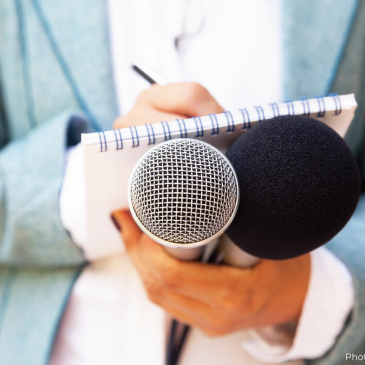Editor’s note: Dr. Jonathan JK Stoltman is the director of the Opioid Policy Institute and the co-founder of Reporting on Addiction. Dr. Stoltman has worked as an addiction scientist and advocate since 2013. Reporting on Addiction focuses on developing materials that improves how journalists cover addiction. His research focuses on the intersection of opioid addiction, digital health, stigma, and reproductive health. His research has appeared in journals such as Drug and Alcohol Dependence, Addictive Behaviors, and Experimental and Clinical Psychopharmacology. He shares about Reporting on Addiction as part of our Special Series on Addiction Myths and Misinformation.
 Misinformation about addiction directly and negatively impact people’s lives. Misinformation means getting the facts wrong. The most common misinformation are beliefs like “harm reduction just enables drug use” or “treatment with medication isn’t real treatment.” These beliefs directly harm people who use drugs and are not aligned with science, but these are common beliefs in our society. Why?
Misinformation about addiction directly and negatively impact people’s lives. Misinformation means getting the facts wrong. The most common misinformation are beliefs like “harm reduction just enables drug use” or “treatment with medication isn’t real treatment.” These beliefs directly harm people who use drugs and are not aligned with science, but these are common beliefs in our society. Why?
One of the most common ways misinformation is spread is unintentionally by journalists. Journalists are powerful because they shape public understanding of topics. When they are not as well informed about a topic, their ability to accurately inform the public is diminished. Our group, Reporting on Addiction, is dedicated to helping journalists work with experts through training and experts through experience to help break this cycle of misinformation.
Reporting on Addiction formed in 2020 in response to the many experts who were frustrated with how their work was misrepresented in the media and the need expressed by journalists to help improve their coverage of this topic. When we were developing Reporting on Addiction we surveyed projects to learn about what models worked for journalists. We were surprised that no effort had previously incorporated journalists, journalism educators, and experts to work on the problem of addiction misinformation. Getting all the voices in the room is key to understanding the problems and solutions.
For example, we could see that misinformation was having an impact on reporting, people who use drugs, our communities and our policymakers. Misinformation hit all aspects of drug use and addiction including: treatment (e.g., “medication is a crutch”) that leads to people being less likely to seek help for addiction; harm reduction (e.g., “naloxone makes people use drugs more”) that reduces willingness to invest in well-researched public health interventions; recovery (e.g., “curing addiction”) that puts blame on people who return to use of drugs; and prevention (e.g., “prevention doesn’t work”) that pushes us further from investing in science-backed approaches. So, we founded Reporting on Addiction to help journalists learn about the key elements of addiction and help experts better interact with journalists to improve their reporting.
One of the main ways to address misinformation is to improve training and support for journalists. Journalism schools are very focused on learning the skills needed to be a journalist and not as focused on specific topics of coverage like addiction. To address this, we created multiple college level curriculums that journalism educators can plug into their courses and work with student newspapers as they cover this topic. We also have various training opportunities for professional journalists and newsrooms that cover addiction and drug use. As part of this work, we created training and handy reference guides for how to write and create visuals accurately and empathically.
Additionally, we provide media training for experts so that they are better able to interact with the media. This also helps address a shortage of experts willing and able to work with the media and provides more reliable sources for journalists.
Reporting on Addiction was created through a partnership of experts and journalists who came together to address the problem of misinformation about addiction in the media. Our work has shown that it is possible to improve the media’s coverage of addiction, and that this can have a positive impact on the lives of people with addiction. The media plays a significant role in shaping public opinion about addiction and there is a need for more accurate and empathic reporting about addiction in the media. Only by working together can we improve Reporting on Addiction.
–Jonathan JK Stoltman, PhD
What do you think? Please use the comment link below to provide feedback on this article.




